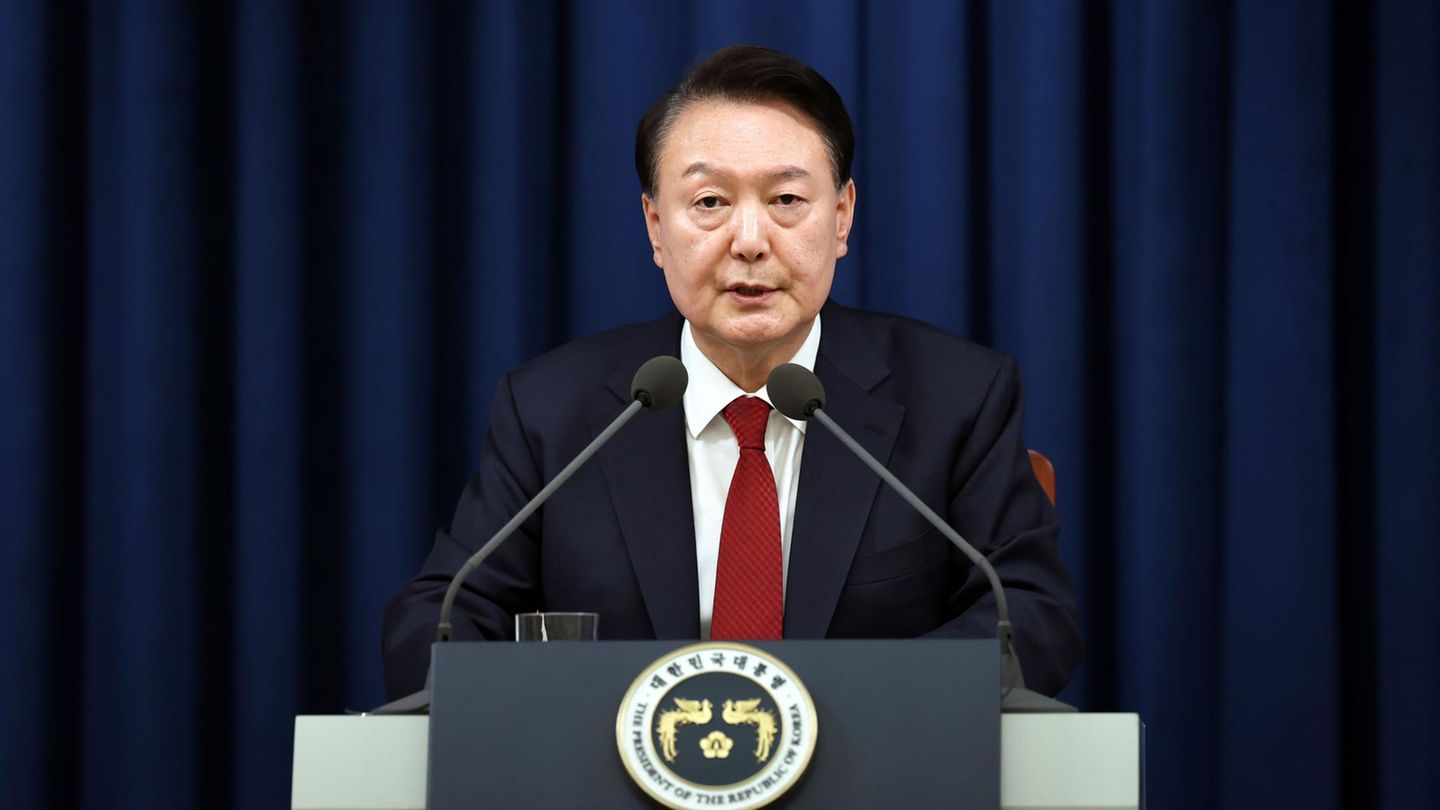South Korea
Head of state declares martial law – and then bows to the protest
Copy the current link
South Korean leader Yoon Suk Yeol declared martial law in a televised speech. After massive protests against the decision, he announced a change of course.
U-turn in South Korea: President Yoon Suk Yeol has announced that he will lift the martial law he imposed in the East Asian country. Yoon said in a TV appearance that the military had withdrawn and the Cabinet would meet soon.
A few hours earlier, the president had unexpectedly declared martial law in the midst of a domestic political crisis. The background to the conflict is obviously a dispute over the state budget.
Yoon cited the role of the country’s opposition as the reason for the state of emergency. He accused them of sympathizing with North Korea. The declared state of emergency aims to “eliminate pro-North Korean forces and protect the constitutional order of freedom.”
National Assembly against martial law
A little later, the National Assembly called on the President to lift the state of emergency. All 190 MPs present voted for the motion. According to the latest information, Yoon will now comply.
Declaration of martial law: soldiers and protesters face each other
Head of State Yoon Suk Yeol surprisingly declared martial law on South Korea in a TV speech. He justified this with the need to protect the country’s democratic order and directed accusations at the opposition, which holds the majority in parliament
© Uncredited/South Korea Presidential Office/AP / DPA
Back
Further
There were no indications that the totalitarian-ruled neighboring country North Korea was involved in the situation. The US government, like Russia and Germany, was concerned about developments in South Korea.
Dispute over South Korea’s budget
The opposition Democratic Party (DP), which has a majority in the National Assembly, single-handedly approved a budget plan in the parliamentary special committee for budget and balance sheets on Friday. Yoon’s office then called on the left-liberal opposition to withdraw the budget plan with the reduced spending.
There were demonstrations around the parliament building during the night, but things remained peaceful. The building had meanwhile been blocked by the military. Later, no soldiers were seen in front of the building, but rather riot police, as a reporter from the German Press Agency observed.
German embassy did not see foreigners in danger
The German embassy in Seoul saw no immediate danger for foreigners. “It is currently not possible to predict what restrictions this decision will impose on foreign nationals in the Republic of Korea. In our opinion, there is no immediate threat to the personal safety and property of foreign nationals,” the embassy wrote in a statement to Germans living in South Korea. In particular, there are no signs of a military conflict with North Korea.
Yoon has been under domestic political pressure for months. Recently, an alleged corruption scandal involving his wife has further depressed his popularity ratings. The incumbent party is also fighting with the opposition over the budget law for the coming year.
Yoon Suk Yeol and the opposition
Yoon also accused the parliament, which is dominated by the opposition majority, of undermining government business through motions to impeach ministers and other high-ranking officials. Since the government took office in May 2022, the National Assembly has submitted 22 motions for impeachment. This is unprecedented worldwide.
Tensions on the Korean peninsula have also been increasing for months. Over the past two years, North Korea has significantly increased its missile tests and increased its rhetoric against the United States and South Korea. North Korea also sent thousands of soldiers to Russia, where they are helping to recapture the Kursk region.
Note: This article has been updated several times.
tkr/Fabian Kretschmer and Dirk Godder
Source: Stern
I have been working in the news industry for over 6 years, first as a reporter and now as an editor. I have covered politics extensively, and my work has appeared in major newspapers and online news outlets around the world. In addition to my writing, I also contribute regularly to 24 Hours World.




